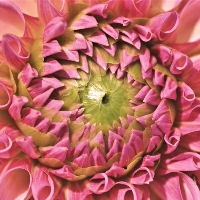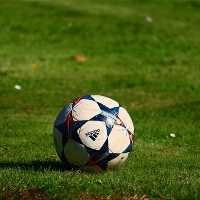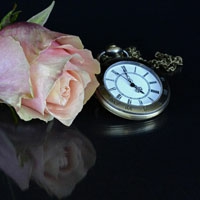2020高考英语山东卷(新高考全国卷Ⅰ)—精校附答案
2020高考英语山东卷(新高考全国卷Ⅰ)—精校附答案
听力部分(山东省2020年1月单独考查)
第一部分 阅读(共两节, 满分50分)
第一节(共15小题;每小题2. 5分,满分37. 5分)
阅读下列短文,从每题所给的A、B、C、D四个选项中选出最佳选项。
A
POETRY CHALLENGE
Write a poem about how courage, determination, and strength have helped you face challenges in your life.
Prizes
3 Grand Prizes: Trip to Washington, D. C. for each of three winners, a parent and one other person of the winner’s choice. Trip includes round-trip air tickets, hotel stay for two nights, and tours of the National Air and Space Museum and the office of National Geographic World.
6 First Prizes: The book Sky Pioneer: A Photo biography of Amelia Earhart signed by author Corinne Szabo and pilot Linda Finch.
50 Honorable Mentions: Judges will choose up to 50 honorable mention winners, who will each receive a T-shirt in memory of Earhart’s final flight.
Rules
Follow all rules carefully to prevent disqualification.
Write a poem using 100 words or fewer. Your poem can be any format, any number of lines.
Write by hand or type on a single sheet of paper. You may use both the front and back of the paper.
On the same sheet of paper, write or type your name, address, telephone number, and birth date.
Mail your entry to us by October 31 this year.
1. How many people can each grand prize winner take on the free trip?
A. Two. B. Three. C. Four. D. Six.
2. What will each of the honorable mention winners get?
A. A plane ticket.
B. A book by Corinne Szabo.
C. A special T-shirt.
D. A photo of Amelia Earhart.
3. Which of the following will result in disqualification?
A. Typing your poem out.
B. Writing a poem of 120 words.
C. Using both sides of the paper.
D. Mailing your entry on October 30.
B
Jennifer Mauer has needed more willpower than the typical college student to pursue her goal of earning a nursing degree. That willpower bore fruit when Jennifer graduated from University of Wisconsin-Eau Claire and became the first in her large family to earn a bachelor’s degree.
Mauer, of Edgar, Wisconsin, grew up on a farm in a family of 10 children. Her dad worked at a job away from the farm, and her mother ran the farm with the kids. After high school, Jennifer attended a local technical college, working to pay her tuition (学费), because there was no extra money set aside for a college education. After graduation, she worked to help her sisters and brothers pay for their schooling.
Jennifer now is married and has three children of her own. She decided to go back to college to advance her career and to be able to better support her family while doing something she loves: nursing. She chose the UW-Eau Claire program at Ministry Saint Joseph’s Hospital in Marshfield because she was able to pursue her four-year degree close to home. She could drive to class and be home in the evening to help with her kids. Jennifer received great support from her family as she worked to earn her degree: Her husband worked two jobs to cover the bills, and her 68-year-old mother helped take care of the children at times.
Through it all, she remained in good academic standing and graduated with honors. Jennifer sacrificed (牺牲) to achieve her goal, giving up many nights with her kids and missing important events to study. “Some nights my heart was breaking to have to pick between my kids and studying for exams or papers,” she says. However, her children have learned an important lesson witnessing their mother earn her degree. Jennifer is a first-generation graduate and an inspiration to her family—and that’s pretty powerful.
4. What did Jennifer do after high school?
A. She helped her dad with his work.
B. She ran the family farm on her own.
C. She supported herself through college.
D. She taught her sisters and brothers at home.
5. Why did Jennifer choose the program at Ministry Saint Joseph’s Hospital in Marshfield?
A. To take care of her kids easily.
B. To learn from the best nurses.
C. To save money for her parents.
D. To find a well-paid job there.
6. What did Jennifer sacrifice to achieve her goal?
A. Her health.
B. Her time with family.
C. Her reputation.
D. Her chance of promotion.
7. What can we learn from Jennifer’s story?
A. Time is money.
B. Love breaks down barriers.
C. Hard work pays off.
D. Education is the key to success.
C
In the mid-1990s, Tom Bissell taught English as a volunteer in Uzbekistan. He left after seven months, physically broken and having lost his mind. A few years later, still attracted to the country, he returned to Uzbekistan to write an article about the disappearance of the Aral Sea.
His visit, however, ended up involving a lot more than . Hence this book, Chasing the Sea: Lost Among the Ghosts of Empire in Central Asia, which talks about a road trip from Tashkent to Karakalpakstan, where millions of lives have been destroyed by the slow drying up of the sea. It is the story of an American travelling to a strange land, and of the people he meets on his way: Rustam, his translator, a lovely 24-year-old who picked up his colorful English in California, Oleg and Natasha, his hosts in Tashkent, and a string of foreign aid workers.
This is a quick look at life in Uzbekistan, made of friendliness and warmth, but also its darker side of society. In Samarkand, Mr Bissell admires the architectural wonders, while on his way to Bukhara he gets a taste of police methods when suspected of drug dealing. In Ferghana, he attends a mountain funeral (葬礼) followed by a strange drinking party. And in Karakalpakstan, he is saddened by the dust storms, diseases and fishing boats stuck miles from the sea.
Mr Bissell skillfully organizes historical insights and cultural references, making his tale a well-rounded picture of Uzbekistan, seen from Western eyes. His judgment and references are decidedly American, as well as his delicate stomach. As the author explains, this is neither a travel nor a history book, or even a piece of reportage. Whatever it is, the result is a fine and vivid description of the purest of Central Asian traditions.
8. What made Mr Bissell return to Uzbekistan?
A. His friends’ invitation.
B. His interest in the country.
C. His love for teaching.
D. His desire to regain health.
9. What does the underlined word “that” in paragraph 2 refer to?
A. Developing a serious mental disease.
B. Taking a guided tour in Central Asia.
C. Working as a volunteer in Uzbekistan.
D. Writing an article about the Aral Sea.
10. Which of the following best describes Mr Bissell’s road trip in Uzbekistan?
A. Romantic.
B. Eventful.
C. Pleasant.
D. Dangerous.
11. What is the purpose of this text?
A. To introduce a book.
B. To explain a cultural phenomenon.
C. To remember a writer.
D. To recommend a travel destination.
D
According to a recent study in the Journal of Consumer Research, both the size and consumption habits of our eating companions can influence our food intake. And contrary to existing research that says you should avoid eating with heavier people who order large portions (份), it’s the with big appetites you really need to avoid.
To test the effect of social influence on eating habits, the researchers conducted two experiments. In the first, 95 undergraduate women were individually invited into a lab to ostensibly (表面上) participate in a study about movie viewership. Before the film began, each woman was asked to help herself to a snack. An actor hired by the researchers grabbed her food first. In her natural state, the actor weighed 105 pounds. But in half the cases she wore a specially designed fat suit which increased her weight to 180 pounds.
Both the fat and thin versions of the actor took a large amount of food. The participants followed suit, taking more food than they normally would have. However, they took significantly more when the actor was thin.
For the second test, in one case the thin actor took two pieces of candy from the snack bowls. In the other case, she took 30 pieces. The results were similar to the first test: the participants followed suit but took significantly more candy when the thin actor took 30 pieces.
The tests show that the social environment is extremely influential when we’re making decisions. If this fellow participant is going to eat more, so will I. Call it the “I’ll have what she’s having” effect. However, we’ll adjust the influence. If an overweight person is having a large portion, I’ll hold back a bit because I see the results of his eating habits. But if a thin person eats a lot, I’ll follow suit. If he can eat much and keep slim, why can’t I?
12. What is the recent study mainly about?
A. Food safety.
B. Movie viewership.
C. Consumer demand.
D. Eating behavior.
13. What does the underlined word “beanpoles” in paragraph 1 refer to?
A. Big eaters.
B. Overweight persons.
C. Picky eaters.
D. Tall thin persons.
14. Why did the researchers hire the actor?
A. To see how she would affect the participants.
B. To test if the participants could recognize her.
C. To find out what she would do in the two tests.
D. To study why she could keep her weight down.
15. On what basis do we “adjust the influence” according to the last paragraph?
A. How hungry we are.
B. How slim we want to be.
C. How we perceive others.
D. How we feel about the food.
第二节(共5小题;每小题2. 5分, 满分12. 5分)
阅读下面短文,从短文后的选项中选出可以填入空白处的最佳选项。选项中有两项为多余选项。
Some individuals are born with a gift for public speaking. ___16___ Do you want to be a good public speaker? Here are some principles you must master.
People want to listen to someone who is interesting, relaxed and comfortable. Too often, when you stand up to give a speech, you focus on the “public” at the expense of the “speaking”. ___17___ Focus on the speaking. Talk directly to your audience, be yourself and make a connection.
Even the most successful public speaker will make mistakes. Yet, the only one who cares about any mistake is the one who is speaking. People’s attention wanders constantly. In fact, most people only absorb about 20 percent of a speaker’s message. So, don’t stop speaking when you make a mistake unless it’s a truly serious one. ___18___
Your goal is not to be a perfect public speaker. ___19___ And like everything else in life, that takes practice. Remember, even world champion athletes practice their skills on a consistent basis.
___20___ It’s rare to hear someone say, “I wish that speaker had spoken longer.” On the other hand, you probably can’t count the times that you’ve thought, “I’m glad that talk is over. It seemed to go on forever!” So surprise your audience. Always make your presentation just a bit shorter than anticipated. It’s better to leave your listeners wishing for more than shifting restlessly in their seats waiting for your speech finally to end.
完整内容请到 下载。
 欲握玫瑰必承其痛 2022-09-27 10:28:42
欲握玫瑰必承其痛 2022-09-27 10:28:42









